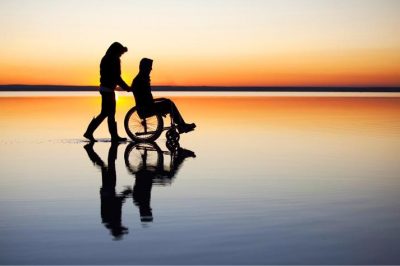1 – No Pity
We don’t want pity. Just like you don’t always worry about your problems, we don’t always feel bad about our condition. But if you pity us, well yeah, that makes us feel bad!
We are not “broken” or burdens. We may need assistance to do some things or need to use mobility aids or have other accommodations. However, we are not helpless, child-like, or incapable of doing many other things for ourselves.
2 – Toxic Positivity
We may or may not be “suffering,” but it is hurtful to be told our illness or pain is a test from Allah and to be positive all the time.
In some cases, disability in itself isn’t even our “struggle”. The problem is the ways our community and the wider world do not make space for us, allowing us to exist just as we are.
In other cases, we may be dealing with really unpleasant symptoms as well, and all the positive thinking in the world isn’t going to change that we are ill or in pain. Allah did not create us this way as a punishment, nor as a lesson, to you or to us.
3 – Being Part of the Community
We deserve to be part of the community.
We are a valid part of the community. Muslims with disabilities should not be hidden away, shunned, or neglected by their siblings. We have a right to engage in the masjid, to pray in communal prayers, to marry, to work, etc.
Also, we are not inspirations for doing these things that you may take for granted.
4 – It’s Real Suffering
We are not faking, trying to get attention, or stealing resources.
Sadly people often ask a lot of questions about our conditions that are not anyone else’s business, and hurtfully this is done in an effort to decide if our illness or pain is legitimate.
In particular, this happens a lot with younger disabled people – such as when we try to sit in a chair to pray at the mosque. Our medical conditions are no one’s business, and we are in no way benefiting on the backs of our community by being open about our needs.
5 – No Advice
We are well informed about our condition and do not need your advice.
Everyone thinks they know the cure for what is ailing us. This attitude is not helpful and can be quite insulting. If you are not part of our medical team, we did not ask for your opinion or treatment advice.
And while we appreciate du’as for our overall well-being, many of us are not looking to be “cured” nor do we want excessive attention paid to us just because we are different in ways you do not understand.
Pages: 1 2
